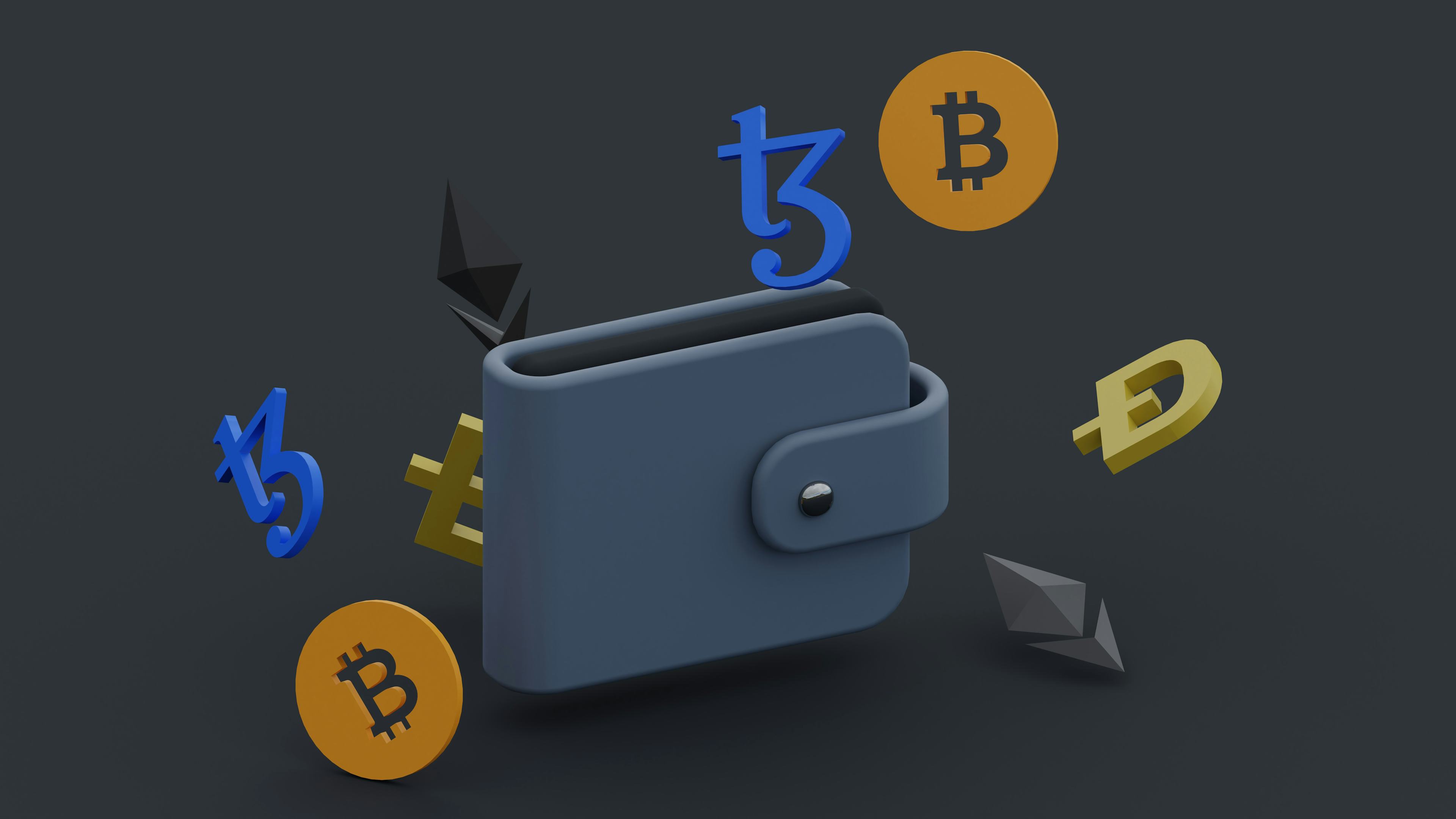How to Invest Money and Build Wealth
If you stumbled upon this page, first know that I am a software engineer, not a financial advisor. This is not professional financial advice.
Rather, this is the financial advice I'd give to my parents, children, or someone who otherwise has no idea where to start when it comes to investing.
The retirement accounts discussed in this article are relevant to people living in the United States.
The goal of this article is to describe a simple guide to investing and building wealth over time. If you want to dive deeper, check out J. L. Collins and Ramit Sethi's work on this topic.
Why invest?
Historically, the stock market grows at a rate of 8% per year, letting you build wealth at a rate that outpaces the average inflation rate of 3%.
Historical data cannot predict the future with certainty. There's always risk when investing. There's also risk when walking out your front door. No one can say what will happen in the future.
With that said, I believe the risk/reward ratio of investing outweighs the risk of not investing out of fear of a market crash.
The key insight with investing is compound interest. Put some numbers into this compound interest calculator to see how your money could grow over time. Put 8% for the estimated interest rate, which is the historic rate of stock market growth.
Where to invest?
To start, you should be aware of four accounts:
- Traditional 401k, which would be set up by your employer.
- Roth IRA, set up by you, the individual.
- HSA, which would be offered as part of your employer's healthcare plan.
- Taxable brokerage account, where you freely can buy and sell stocks.
There are other accounts, but to keep things simple, we'll focus on these four.
Think of each of these accounts as financial buckets. We'll think of financial buckets as any account where money's stored. For example, You probably have a checking account, which is your financial bucket for easily accessible cash.
Let's briefly talk about how the traditional 401k, Roth IRA, HSA, and taxable brokerage account differ.
Traditional 401k
The traditional 401k account would be offered by your employer. It allows you to invest your hard-earned money before income tax. You only pay tax once you sell your 401k investments.
There's a limit to how much you can invest in your 401k. However, whatever amount you don't invest in your 401k this year cannot be invested in your 401k next year. This is why it's important to try to max out your 401k contribution every year.
Roth IRA
The Roth IRA is somewhat similar to the 401k, but the tax implications are reversed. With the Roth IRA, you invest money you earn after income tax. However, unlike a traditional 401k, when you sell investments from your Roth IRA, you don't have to pay tax on the gains you made.
Similar to the traditional 401k, there are limits to how much you can invest in your Roth IRA.
Also, similar to the traditional 401k, any amount you don't invest into your Roth IRA this year cannot be invested next year. You should try to max out your Roth IRA contribution in addition to your traditional 401k contribution every year.
Not everyone qualifies for a Roth IRA. There are income limits where if you or your household makes over a certain income, you cannot put money into a Roth IRA.
HSA
Your employer may give you an option to get an HSA (Health Savings Account) as part of your health insurance plan. This is another tax-advantaged financial bucket you can use as an investment vehicle.
An HSA is offered as part of a high-deductible health insurance plan. An HSA could be a good option if you're healthy and don't expect many trips to the doctor during the year. But only you can decide if an high-deductible health plan is right for you.
You can buy and sell investments tax-free with your HSA at any time as long as the money is used for medical expenses. However, once you reach a certain age, you can withdraw money like any other investment account.
You can buy investments with your HSA. Just like the 401k and Roth IRA, there's a contribution limit. Also just like the 401k and Roth IRA, you should aim to max out your HSA, otherwise, you're leaving money on the table. You should start seeing a pattern here. 🙂
Taxable brokerage account
Finally, we'll consider the taxable brokerage account. You'll use the money you paid income taxes on to invest into this account. You'll also pay taxes when you sell investments in these accounts. Now you should see why the 401k, Roth, and HSA are so attractive.
The upside to the taxable account is you can sell your investment at any time with no extra penalty. However, I cannot stress this enough. You should invest for the long term. My advice for the taxable account is to prioritize maxing out your 401k, Roth IRA, and HSA before investing into this account, since this account has the largest tax implications.
Four tax-advantaged accounts at a glance
Now that you should have a high level understanding of the four investment vehicles, here's a table reiterating how you're taxed for each account.
| Traditional 401k | Roth IRA | HSA | Taxable | |
|---|---|---|---|---|
| Taxed on money used to invest | no | yes | no | yes |
| Taxed on money made when sold | yes | no | no | yes |
Mindset: Investing for the long-term
For each of 401k, Roth IRA, and HSA, you should view these as long-term investing vehicles. The IRS imposes tax penalties if you pull money out before a certain age.
But this should not be a problem for you. You're investing for the long-term. Not as a way to get rich quick. Not as a way to save for a vacation later this year.
You're investing to grow your wealth over many years. Invest in these accounts continuously and live your life.
What to invest in?
Now that you know where to invest, let's look at what to invest in.
There's no magic to this. I would suggest:
- index funds / ETFs (exchange traded funds)
- target-date funds
Index funds
When you buy an index fund, you can think of it like you're buying many stocks all at once.
An index fund can give you exposure to many market sectors (technology, energy, healthcare, etc.) with a single ticker symbol.
A ticker symbol is nothing more than an abbreviation used to describe a stock. Amazon's ticker symbol is AMZN. Google's ticker symbol is GOOG.
The index fund I like is Vanguard Total World Stock Index Fund ETF (ticker symbol VT), which tracks the global market. In other words, by buying VT, you're betting the global economy will continue to grow over time.
Target-date funds
Target date funds are designed to manage your risk assuming the time you plan to retire. For example, Vanguard Target Retirement 2040 Fund (VFORX) is a target-date fund for someone who wants to retire in 2040.
Pick a target date fund with the year you want to retire, and you're good to go.
Which to choose: index fund or target-date fund?
Either an index fund or a target-date fund is fine. Choose whichever one you have access to.
Index funds generally offer more choices and lower costs.
Target-date funds are designed to be as simple as possible. The TDF automatically reallocates your portfolio to less risky investments as you get closer to retirement.
Don't overthink this, either one will go a long way over the long-term. If you want simplicity, choose a target-date fund. If you want more control, choose an index fund/ETF.
How to invest?
Your employer would provide the 401k and HSA accounts.
To open a Roth IRA and taxable account, you can use a broker service such as Fidelity. They have customer support to help you if needed.
What about my savings account?
The idea that you'll make money by earning interest on your savings account is a joke.
You might earn less than 1% interest on your savings account. Historically, inflation devalues the USD 3% year over year. In 2021, inflation was 7%! You are, in some sense, losing money by keeping your money in a savings account in the long-term...
Savings accounts are good if you want to save money for something that will or could happen in the near future. You might want to save for a vacation, or a big fancy wedding, or an emergency fund.
It's recommended to have an emergency fund before investing. Your emergency fund should be able to cover at least three to six months' worth of expenses.
However, you shouldn't look at savings accounts as a way to grow your money.
Recap
To recap, here's my simple guide to investing:
- Buy an index fund ETF (e.g. VT) or target-date funds (e.g. VFORX).
- Max out your tax advantaged accounts first (401k, Roth IRA, HSA) first. Invest whatever is left over in the taxable account.
- Be consistent year over year and live your life. Don't worry about day-to-day market behavior. Don't try to liquidate your investments before retirement age to avoid penalties. You're in this for the long-term.
Let me know if anything in this article is unclear or inaccurate. May you have a prosperous life!



